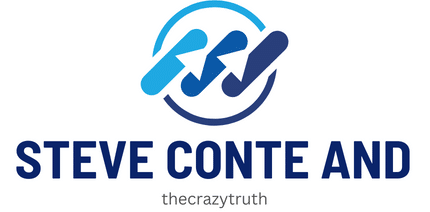How Can Small UK Publishing Houses Compete with Major Players in the Audiobook Market?

As the global market for books continues to evolve, there is a segment that is experiencing unprecedented growth. We are talking about audiobooks. This content format is rapidly gaining traction among readers, and with good reason. The convenience to consume books while on the move and the engaging nature of audio content are driving the monumental rise of audiobooks. For publishers, the rise of audiobooks presents an opportunity to increase sales and reach more readers. However, for small publishing houses in the UK, the audiobook boom also comes with a challenge: how to compete with the major players dominating the market. This article explores strategies small UK publishers can employ to stake a claim in the thriving audiobook market.
Embrace the Digital Transition
First things first, small publishers need to fully commit to the digital transition. The rapid shift of readers from physical books to digital content isn’t a trend—it’s the reality of the market. In this digital age, audiobooks and ebooks are the norm, not the exception. To compete with major players, small publishers need to make digital content, particularly audiobooks, a central part of their business strategy.
A lire aussi : How to Leverage Virtual Assistant Technology to Improve UK Small Business Productivity?
As a small publisher, you might be thinking, "But we don’t have the resources to compete with big publishers." While it’s true that major publishers have more resources, it’s also a fact that the digital market levels the playing field somewhat. In the digital world, it’s not just about the size of your budget but the quality of your content.
One way small publishers can capitalize on the digital market is through strategic distribution. Major players may have a stronghold on mainstream distribution channels, but there are other avenues small publishers can exploit. For instance, you can collaborate with independent online stores or sell directly from your website. By doing this, you can make your audiobooks more accessible to readers and increase your sales.
A lire en complément : What Are the Key Success Factors for UK Luxury Car Brands in Emerging Markets?
Diversify your Content Offerings
In the audiobook market, content is king. The more diverse your content offerings, the wider the pool of readers you can attract. Diversification doesn’t necessarily mean venturing into genres you’re unfamiliar with. It could be as simple as producing audiobook versions of your existing titles.
Small publishers have the benefit of more agility compared to their larger counterparts. You can use this to your advantage by quickly adapting to market trends and consumer preferences. If you notice a surge in demand for a particular genre or author, you can swiftly pivot your content strategy to cater to this market.
Partner with Authors and Narrators
One of the strengths of small publishers is the opportunity for more personal relationships with authors and narrators. These relationships can be leveraged to compete with major players in the audiobook market. By working closely with authors and narrators, you can create unique and engaging audiobooks that stand out in the market.
For example, you could collaborate with authors on exclusive audiobook content, like bonus chapters or author-narrated introductions. Such unique offerings can create a buzz among readers and drive more people to choose your audiobooks over those from large publishers.
Invest in Quality Production
Just as with print books, the quality of audiobooks matters. In fact, with audio content, quality can make or break a book. If the audio quality is poor or the narration is subpar, it can turn off listeners and lead to negative reviews.
Investing in quality production may seem like a big expense for small publishers, but it’s an investment that can pay off. High-quality audiobooks can compete with those produced by major publishers and can help you carve out a niche in the market.
Leverage Data for Strategic Decisions
Data is a powerful tool in the publishing industry. With data, you can gain insights into reader preferences, market trends, and the performance of your audiobooks. You can use this information to make strategic decisions that can help you compete with major players.
For instance, data can show you which of your titles are performing well as audiobooks and which ones are not. This can help you decide which titles to prioritize for audio production. Likewise, data can provide insights into the genres and authors that are popular among audiobook listeners. You can use this information to guide your content strategy.
The audiobook market may be dominated by major players, but that doesn’t mean there’s no room for small publishers. By embracing the digital transition, diversifying your content, partnering with authors and narrators, investing in quality production, and leveraging data, you can compete with the giants and make your mark in the audiobook industry. Remember, the goal isn’t to beat the major players at their own game but to carve out your own niche in the market. With the right strategies and a commitment to quality, your publishing house can thrive in the booming audiobook market.
Understanding Market Reports and Analysing Audience Age Group
It’s crucial to understand the market you are operating in and this is where market reports come into play. Market reports provide a detailed analysis of the current market size and forecast the growth for a given period. These reports typically cover regions such as North America, Asia Pacific, the Middle East among others. They provide valuable insights into the trends, opportunities, and challenges in the audiobook market.
These reports also give a breakdown of the audience age group. This is particularly important as it helps book publishers understand the demography of their target audience. This information can guide your content creation and distribution strategy. Understanding the age group that consumes the most audiobooks can enable you to tailor your content to suit their preferences. For instance, if market reports show that young adults constitute a significant portion of the audiobook market, you might consider producing more titles that appeal to this age group.
Market reports also offer insights into the performance of major players like Penguin Random House. By studying these players, small publishers can identify strategies that have worked in the market and incorporate such strategies into their operations.
Building a Loyal Mailing List and Expanding Distribution Channels
Building a loyal mailing list is another strategy small publishers can use to compete in the audiobook market. A mailing list consists of individuals who have expressed interest in your products and have given you permission to send them updates. This can be a powerful tool for promoting new audiobook titles and driving sales.
You can build your mailing list by offering incentives to potential subscribers. For instance, you could offer a free audiobook or a discount on their first purchase in exchange for their email address. Once you have built a substantial mailing list, it’s crucial to engage your subscribers regularly with meaningful and interesting content. This will help keep your publishing house at the forefront of their minds and increase the chances of them purchasing your audiobooks.
Another key aspect to consider is your distribution channel. Major players might have a grip on popular platforms, but the digital age offers a plethora of alternative channels for audiobook distribution. For example, independent online stores, social media platforms, and even your website can be used to sell your audiobooks. Expanding your distribution channels will increase the accessibility of your books, thereby boosting your market presence.
Conclusion
The rise in popularity of audiobooks has certainly stirred the global book market, creating both challenges and opportunities for small UK publishers. While major players like Penguin Random and Random House may dominate the market, there is room for small publishers to grow and thrive.
By understanding market growth through market reports, tailoring content to suit the age group of your target audience, building a loyal mailing list, and expanding your distribution channels, small publishers can successfully compete in the audiobook market.
More importantly, small publishers shouldn’t lose sight of what sets them apart: the ability to offer unique, quality content and foster personal relationships with authors and narrators. This, paired with strategic investments in top-notch audiobook production, will ensure that small publishers don’t just survive, but thrive in the booming audiobook industry.
Remember, the goal is not to outcompete the likes of Penguin Random or Random House in their game, but to carve out a unique niche that resonates with your audience and reflects your brand. The audiobook market is large enough for everyone. With the right approach, even the smallest publishing house can make a significant impact.
